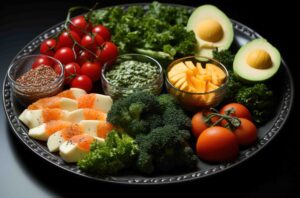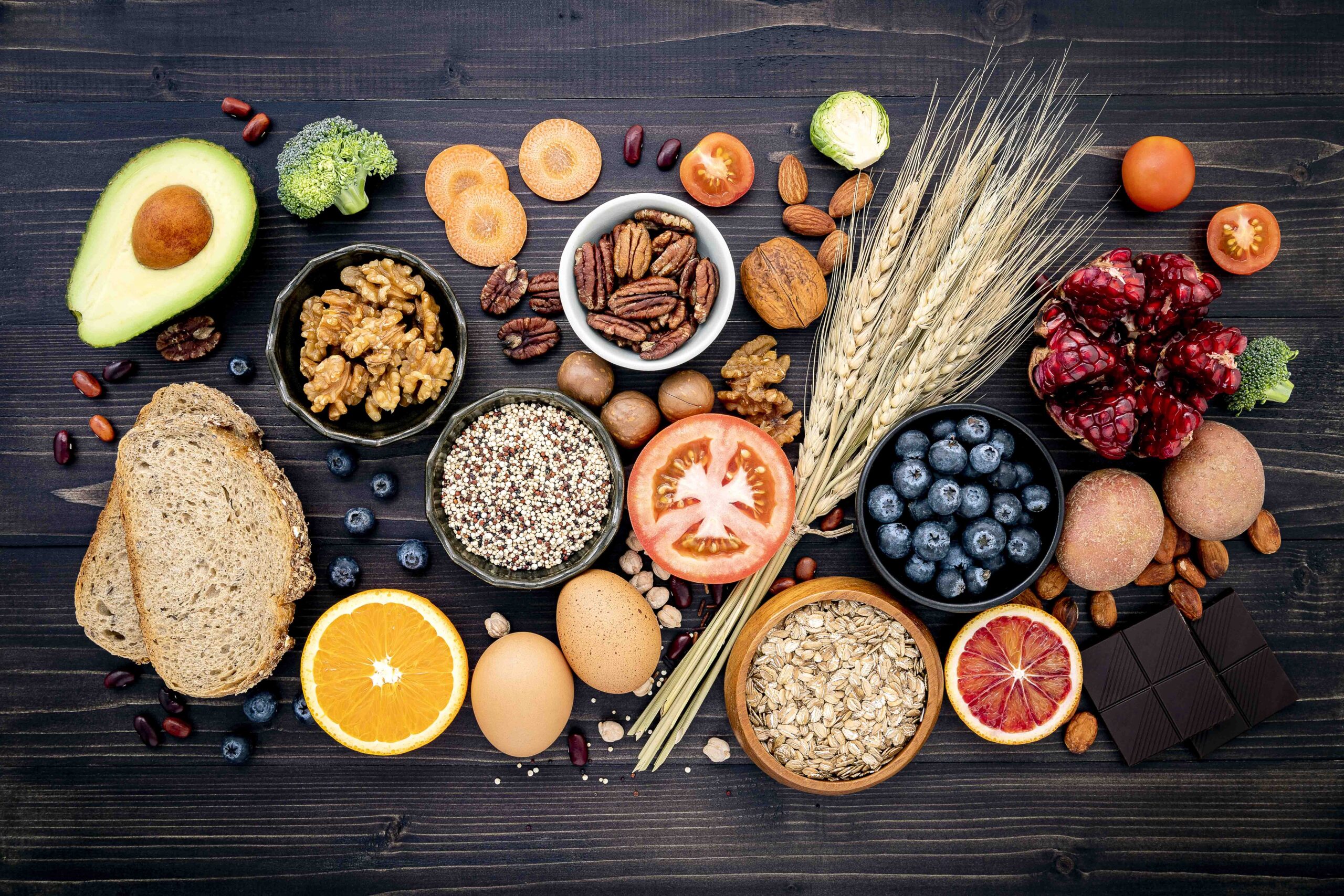Introduction:
As a woman enters menopause, she undergoes a multitude of physical and hormonal changes. Alongside these changes, maintaining a healthy diet becomes paramount for managing symptoms, supporting hormonal balance, and optimizing overall health and well-being. In this guide, we’ll explore the essential components of a diet tailored to women in menopause and provide practical tips for incorporating nutritious foods into your daily routine.
The Power of Nutrition During Menopause:
During menopause, hormonal fluctuations can lead to a variety of symptoms, including hot flashes, weight gain, mood swings, and bone density loss. Fortunately, the right diet can help alleviate these symptoms and support women through this transitional phase.

Key Components of a Healthy Diet for Menopausal Women:
- Lean Proteins: Incorporate sources of lean protein such as poultry, fish, tofu, beans, and legumes into your meals. Protein helps support muscle mass, which can decline during menopause, and promotes satiety, aiding in weight management.
- Whole Grains: Choose whole grains like quinoa, brown rice, oats, and barley over refined grains. Whole grains are rich in fiber, vitamins, and minerals, and can help stabilise blood sugar levels and reduce the risk of heart disease.
- Fruits and Vegetables: Load up on a colorful array of fruits and vegetables, which are packed with essential nutrients, antioxidants, and fiber. Aim for a variety of produce to ensure you’re getting a diverse range of vitamins and minerals.
- Healthy Fats: Incorporate sources of healthy fats such as avocados, nuts, seeds, and olive oil into your diet. Healthy fats support hormone production, brain health, and heart health, and can help alleviate symptoms like dry skin and hair.
- Calcium-Rich Foods: Include calcium-rich foods like dairy products, leafy greens, tofu, and fortified foods to support bone health and reduce the risk of osteoporosis, which becomes more prevalent during menopause.
Practical Tips for Implementing a Healthy Diet:
- Stay Hydrated: Drink plenty of water throughout the day to stay hydrated and support overall health.
- Mindful Eating: Practice mindful eating by paying attention to hunger and fullness cues, and savouring each bite.
- Limit Processed Foods: Minimize consumption of processed foods, sugary snacks, and refined carbohydrates, which can exacerbate symptoms like mood swings and energy fluctuations.
- Moderate Alcohol and Caffeine: Limit alcohol and caffeine intake, as they can disrupt sleep patterns and exacerbate hot flashes and mood swings.
- Consult a Registered Dietitian: Consider consulting a registered dietitian for personalised guidance and support in creating a nutrition plan tailored to your individual needs and preferences.
Conclusion:
Incorporating a healthy diet is a cornerstone of managing menopause symptoms and promoting overall well-being for women in this transformative stage of life. By prioritising nutrient-rich foods, staying hydrated, and practising mindful eating, women can navigate menopause with resilience and vitality, embracing this new chapter with grace and confidence.
Remember, small changes can yield significant benefits, so start incorporating these dietary recommendations into your daily routine today for a healthier tomorrow.



